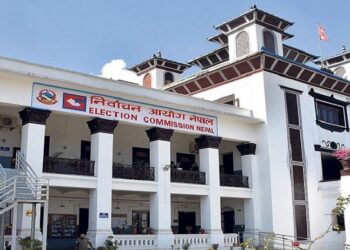KATHMANDU: The Nepal Rastra Bank (NRB) has said that remittance inflows in the country decreased 6.3 percent to Rs 155.37 billion in the first two months of the current fiscal year against an increase of 8.1 percent in the same period of the previous year.
In the US Dollar terms, remittance inflows decreased 5.8 per cent to 1.31 billion in the review period against an increase of 2.6 percent in the same period of the previous year, according to the NRB.
Releasing the Current Macroeconomic and Financial Situation of Nepal based on two months’ data ending mid-September, the central bank stated that the number of Nepali workers taking permits for foreign employment increased significantly to 38,492 during this period.
It had decreased by 99.2 percent in the same period of the previous year.
“The number of Nepali workers (Renew entry) taking approval for foreign employment increased significantly to 22,976 in the review period.
It had decreased by 86.5 percent in the same period of the previous year,” according to the NRB.
It said that the year-on-year consumer price inflation stood at 3.49 per cent in the review period compared to 4.52 percent a year ago. Food and beverage inflation stood at 2.57 per cent whereas non-food and service inflation stood at 4.22 per cent in the review month.
During the period, merchandise exports increased 115.4 per cent to Rs.44.04 billion compared to an increase of 10.5 percent in the same period of the previous year.
Destination-wise, exports to India, China, and other countries increased 150.7 percent, 20.7 percent, and 31.0 percent respectively, the NRB stated.
Export of soyabean oil, palm oil, oil cakes, jute goods, polyester yarn, and thread, among others, increased whereas exports of tea, medicine (Ayurvedic), wire, zinc sheet, and cardamom, among others, decreased in the first two months of the fiscal year 2078/79.
During the period, imports increased by 75.9 per cent to Rs 314.52 billion against a decrease of 22.1 per cent a year ago. Imports of petroleum products, transport equipment, vehicle and parts, crude soyabean oil, gold, and silver increased whereas imports of chemical fertilizer, cement, tobacco, molasses sugar, and pulses, among others, decreased in the review period.









Comment